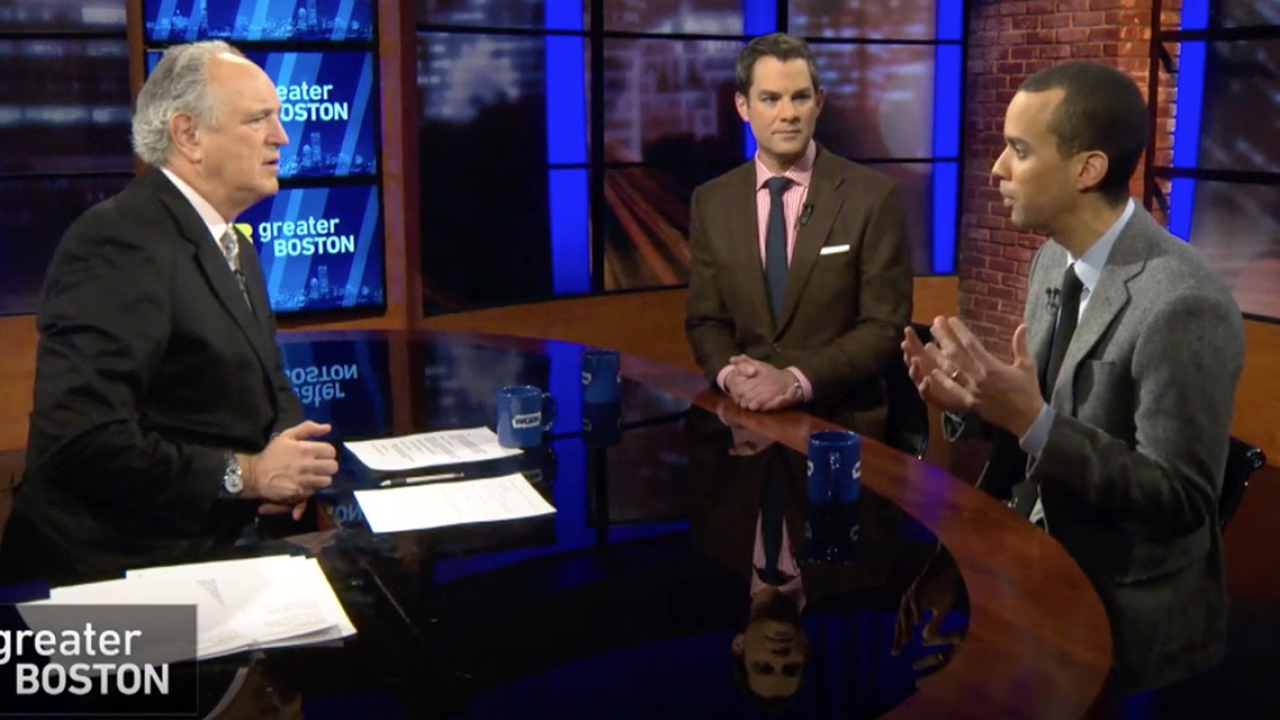Wellesley Professor Discusses the Oscars and Diversity in the Film Industry on WGBH

Michael Jeffries, associate professor of American studies at Wellesley, appeared on WGBH’s Greater Boston with host Jim Braude on January 22 to discuss the #OscarsSoWhite campaign in the wake of the announcement of the 91st Academy Awards nominees.
In 2015, activist April Reign tweeted “#OscarsSoWhite” in response to the announcement of that year’s all-white acting nominees. Shortly thereafter, Cheryl Boone Isaacs, then president of the Academy of Motion Picture Arts and Sciences, created an initiative to increase diversity among Oscar nominees and within the academy itself.
During the WGBH segment, Jeffries granted that the academy had made progress in terms of raw numbers and that we “have reached a point where there is an open and honest conversation about the depth and scale of these problems.” But, he added, there is still “such a long way to go.”
“If you want to produce a more diverse range of stories,” he said, “you’ve got to address the power within the industry.”
Jeffries continued: “In 2015, it wasn’t just about the numbers in the academy, it’s about who are the heads of the studios, and I think there was an article in the LA Times that said studio heads were something like [87] percent male, or something like that, and that’s the other side of the story. When we get to the awards, that’s the end of the process, right, but the beginning of the process—what does the talent pipeline look like for executive producers, directors, screenwriters, etc.?”
Although hiring is key to increasing diversity within the entertainment industry, it does not happen in a vacuum, Jeffries said. In an interview after the WGBH segment, Jeffries expanded upon his perspective, and said that it is just as important for classism, racism, and sexism to be addressed in places like film schools. Additionally, he said, it is vital for new kinds of studios, such as Amazon and Netflix, to keep pushing large production companies to take chances on new kinds of stories. Media, too, plays a role in increased representation within the industry, as “film criticism, and art criticism more broadly, has been dominated by white men for generations,” he added.
While Jeffries said he may not watch the entire Academy Awards ceremony, he is particularly interested in seeing “how the winners and presenters use their platform to address social issues and injustices.”
On a more personal note, he is rooting for Spike Lee, who has garnered his first best director nomination, for BlacKkKlansman. “His movies and his presence had a huge impact on me as a young person consuming popular culture and as a someone who now writes and teaches about it for a living,” Jeffries said.
Photo: Michael Jeffries (right) speaks to Jim Braude on Greater Boston.
With reporting from Christine Roberts ’19



